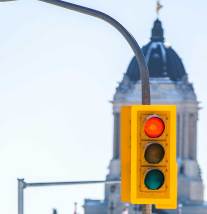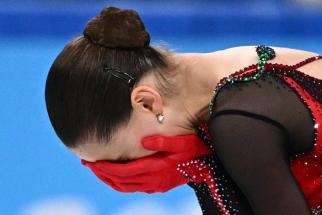Weakness of IOC sanctions fully exposed
Read this article for free:
or
Already have an account? Log in here »
To continue reading, please subscribe:
Monthly Digital Subscription
$0 for the first 4 weeks*
- Enjoy unlimited reading on winnipegfreepress.com
- Read the E-Edition, our digital replica newspaper
- Access News Break, our award-winning app
- Play interactive puzzles
*No charge for 4 weeks then price increases to the regular rate of $19.00 plus GST every four weeks. Offer available to new and qualified returning subscribers only. Cancel any time.
Monthly Digital Subscription
$4.75/week*
- Enjoy unlimited reading on winnipegfreepress.com
- Read the E-Edition, our digital replica newspaper
- Access News Break, our award-winning app
- Play interactive puzzles
*Billed as $19 plus GST every four weeks. Cancel any time.
To continue reading, please subscribe:
Add Free Press access to your Brandon Sun subscription for only an additional
$1 for the first 4 weeks*
*Your next subscription payment will increase by $1.00 and you will be charged $16.99 plus GST for four weeks. After four weeks, your payment will increase to $23.99 plus GST every four weeks.
Read unlimited articles for free today:
or
Already have an account? Log in here »
Hey there, time traveller!
This article was published 18/02/2022 (1395 days ago), so information in it may no longer be current.
There are, it seems, rules for bullies and rules for everyone else.
That truism has been played out in school hallways and playgrounds for centuries. But it’s also prevalent in power politics, as well as in the global proxy battlefield known as the Olympic Games.
Russia has long taken the games motto, “Faster, higher, stronger,” to extremes. For the past two Olympics, including the 2022 Winter Games in Beijing that conclude on Sunday, the International Olympic Committee has banned Russia for continued violations of doping regulations.
The IOC ruling is, however, weak sauce. Russia’s athletes have still been allowed to compete, under the banner of the Russian Olympic Committee (ROC) — proving just how effective Russia’s bullying within the Olympics realm is.
Russia’s flag was not allowed at Beijing; the ROC’s flag, which includes the same white, blue and red colour scheme, flew proudly.
When ROC athletes reached the top of the podium to receive a gold medal, Russia’s familiar national anthem was not played. In its place was an equally stirring piece of music, 90 seconds of a piano concerto by Tchaikovsky, Russia’s most famous composer.
Predictably, Russia’s bullying tactics and penchant for pushing the IOC’s doping rules to the limit and beyond grabbed centre stage at the Beijing Olympics. What made it more notable, and lamentable, is the manner in which it victimized one of its own athletes in its pursuit of golden glory.
Kamila Valieva, a 15-year-old figure-skating phenom, helped the ROC to a gold medal in the discipline’s team event, thanks in part to her becoming the first female figure skater to land a quad jump at the Olympics.
Ms. Valieva seemed destined to become the 2022 Games’ darling, following in the bladeprints of figure-skating legends from Sonja Henie to Katarina Witt. Instead, her accomplishments will be overshadowed by darker aspects, similar to the way an assault and conspiracy derailed the Olympic dreams of Nancy Kerrigan and Tonya Harding.
Ms. Valieva tested positive for the drug trimetazidine, a heart medication, after winning the Russian national championships in December. News of the test didn’t emerge until after her Olympic triumph, sparking renewed charges that Russian officials turn a blind eye to cheating.
How the drug got into Ms. Valieva’s system remains a mystery, but Russian officials argued she should be spared from sanctions because she is a minor. The Court of Arbitration for Sport agreed, and allowed her to compete in the women’s individual event.
Ms. Valieva faltered under the heightened pressure, falling three times during the free skate, a portion of the competition she had dominated on the global stage for the past two years.

Immediately afterward, her coach chose to criticize, rather than console, the devastated 15-year-old. The heart-wrenching scene sickened the sports world, leaving Ms. Witt in tears while commenting on the event for German television.
It’s unconscionable that Russian officials were more concerned about guarding their own reputations than protecting Ms. Valieva from the Olympic-sized scrutiny she clearly could not endure. And while IOC president Thomas Bach denounced the “tremendous coldness” Ms. Valieva’s coaches showed, his organization is equally culpable in this deplorable spectacle.
The IOC needed a glorious scene to save an Olympics event that has been largely shunned by world leaders and television viewers, owing in large part to China’s continuing human-rights violations. And clearly, the committee viewed Ms. Valieva as their golden ticket.
Instead, the IOC has another embarrassing mess on its hands, proving yet again a thorough investigation of how it enforces its rules is needed before the torch is re-lit and the Olympic flag flies over Paris in 2024.


















